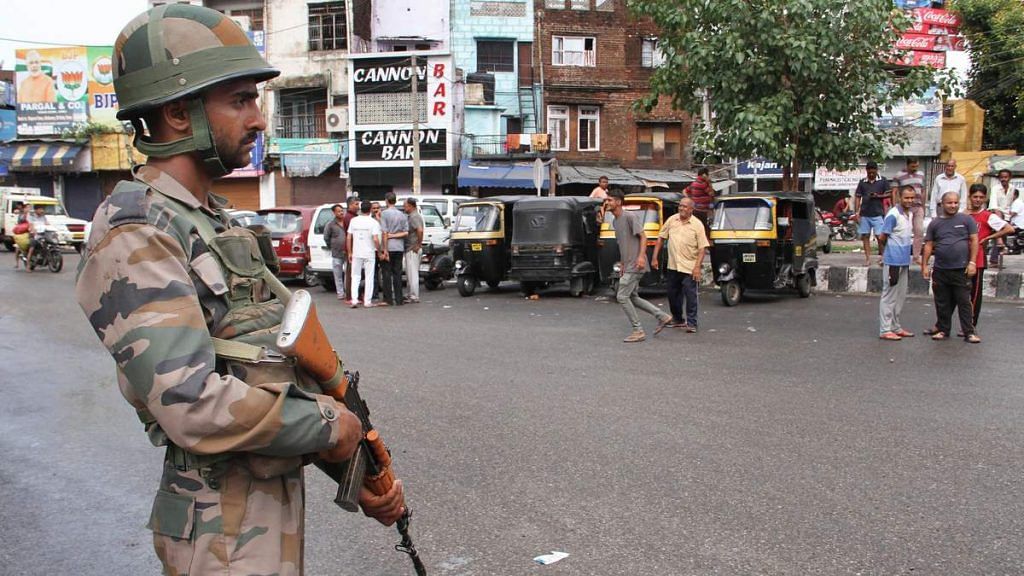As the Bharatiya Janata Party’s domestic and foreign policies take a hard turn to the extreme Right, and as protests spring up across India, it’s important to understand how much popular support it has on these moves. The overall mandate for the BJP was clear in the outcome of the 2019 Lok Sabha election, as was the likelihood that it would follow through on all its hardline promises – be it scrapping Jammu and Kashmir’s special status, paving the way for the Ram Mandir or identifying ‘infiltrators’. But does the average Indian directly support these policies?
In other words, does the average Indian have an authoritarian streak?
In the states most affected by these decisions and where protests have been the most widespread, the consensus has been clear for some time now. In the post-poll survey conducted in the northeast states by the Lokniti-CSDS (Centre for the Study of Developing Societies), the majority of respondents who had heard of the Citizenship Amendment Bill (CAB) at the time of the 2019 election already opposed it.
Similarly, in Jammu and Kashmir, a majority of the residents were equally clear about their views on Article 370 and the presence of the Army under the Armed Forces Special Powers Act (AFSPA). And yet, these known views did not affect the BJP’s decision to move ahead with the dilution of Article 370 and the reorganisation of the erstwhile state, where civil liberties remain curtailed for the fifth straight month.
Also read: Legal autocrats are on the rise. They use constitution and democracy to destroy both
The popular, national view
But it’s likely that these views are not shared nationally. When the question about support for the CAB was asked pan-India by Lokniti-CSDS before the election, a majority of respondents had not heard of the bill; but among those who had, slightly more supported (35 per cent) than opposed (33 per cent) it. (More recent national polling on the CAB, now a legislation, has not been conducted.)
More broadly, Indians have demonstrated both majoritarian and authoritarian impulses for some years now. In a 2019 Azim Premji University-Lokniti-CSDS national survey, more than one-third of Hindu respondents considered Muslims to be unpatriotic (although Muslim respondents did not feel the same way about themselves). More Hindus supported the punishment of people who do not say “Bharat Mata Ki Jai” than those who were opposed to it, and a majority of Hindus supported punishing those who do not stand up for the national anthem. A majority among both Muslims and Hindus supported action against religious conversion.
Younger people do not have particularly more progressive beliefs. In their 2017 study on the attitudes of young people, the CSDS and the Konrad Adenauer Stiftung found that six out of ten respondents supported banning movies that hurt religious sentiments, even more so among Muslim youth; 70 per cent of Hindu youth were opposed to allowing anyone to eat beef; and one-third of young people opposed inter-caste marriage.
Also read: BJP’s ambitious political push shows seriously misplaced priority when economy’s in crisis
Like for authoritarianism
For nearly 40 years, the World Values Survey, a conglomerate of various country-level polling agencies, has surveyed sample populations around the world on their views on various social values. In the latest round (2010-2014), the Indian sample demonstrated a lower commitment to democratic principles than most other major countries.
India, along with Pakistan and Russia, featured below the global average on the importance accorded to democracy. Indian respondents also had lower regard than Pakistani respondents for civil rights and for the belief that these safeguards against oppression were an essential part of a democracy. More Indian respondents supported being ruled by a “strong leader” and the army than those in most other countries – in fact, Indian support was higher than the global average.
Will the combination of the BJP’s Rightward moves post-2019 election win create some discomfort among a group that has otherwise shown support for authoritarianism and majoritarianism? Among BJP supporters, who have already revealed their support for “core Hindutva” issues, opposition is unlikely, or it could be localised. There are, however, strong state-level divisions. In the Azim Premji University-CSDS study, for instance, the southern states demonstrated much greater commitment to the freedom of expression.
But in India overall, people’s comfort level with the BJP’s extreme Right policies is still unclear. The latest Pew Global Attitudes Survey, conducted in the spring of 2018, found that a majority of Indians were satisfied with the way democracy was working. Their main complaint? The economy.
The author is a Chennai-based data journalist. Views are personal.
